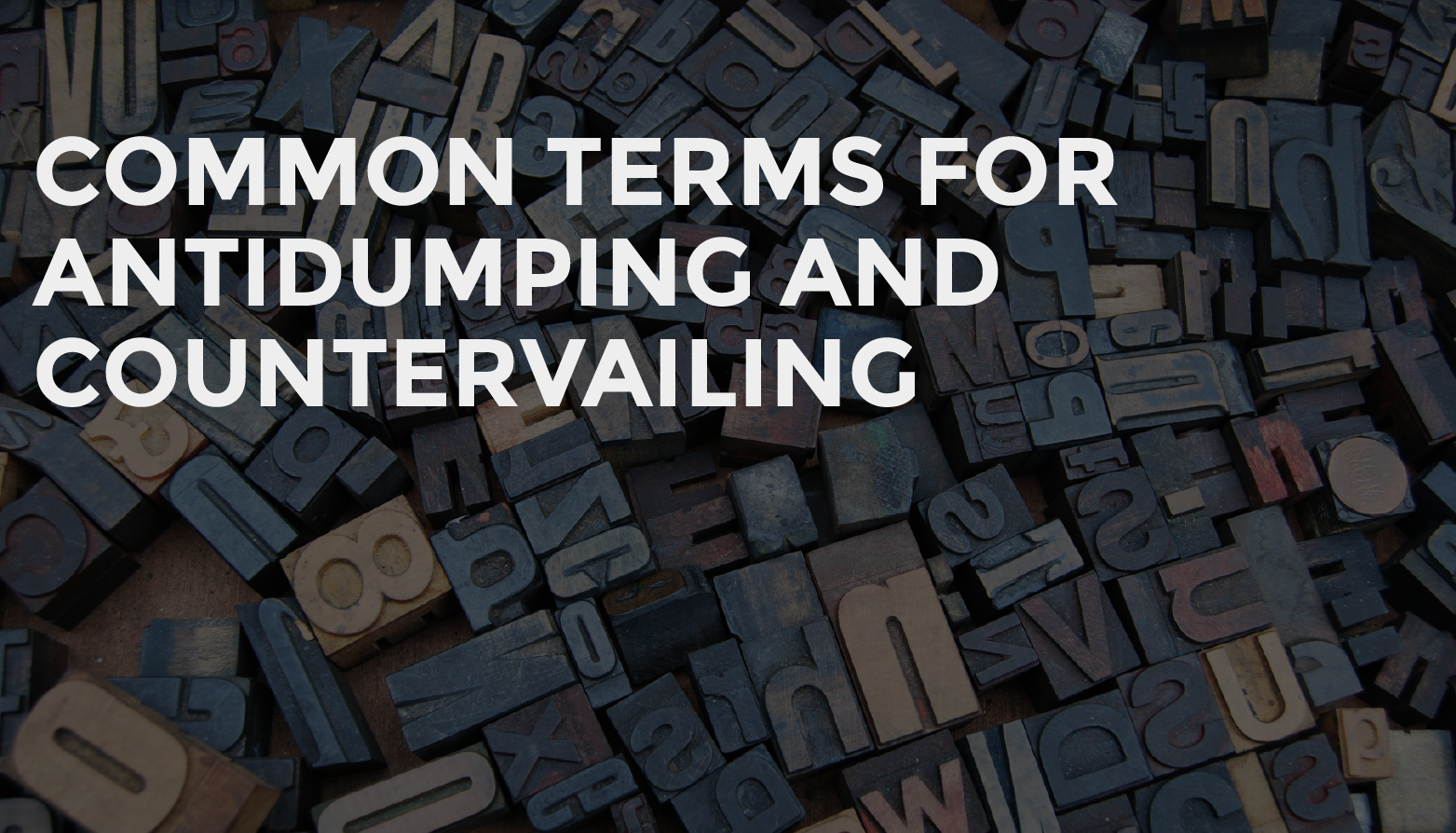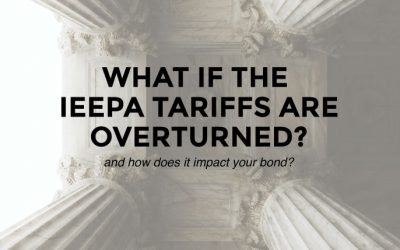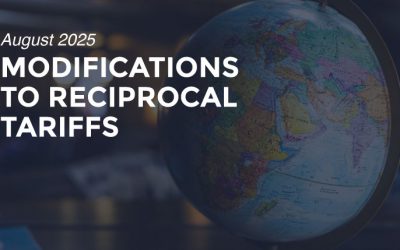Lay the groundwork for a better understanding of the topic with these terms for antidumping and countervailing.
Navigating the complex terrain of international trade requires a keen understanding of various legal and economic concepts, particularly when it comes to ensuring fair competition. Antidumping and countervailing measures are specialized mechanisms used globally to maintain equitable trading practices.
These terms may appear daunting due to their intricate nature and the specificity of their application in trade law. However, they are the pillars of trade defense that businesses and policymakers alike must grasp to fully comprehend the dynamics of global commerce. It’s essential to become conversant with the key terminology that forms the bedrock of this subject.
The following glossary is designed not only to introduce you to these critical terms but also to provide a clearer understanding of the broader discussions found within our resources. Whether you are an importer, exporter, policymaker, or a student of international trade, mastering these terms will empower you to navigate and engage with the trade landscape more effectively.
Here are the top 10 terms for antidumping and countervailing that will lay the foundation for a robust understanding of the topic:
- Dumping: The sale of a product in a foreign market at a price lower than it cost to produce it or lower than it would be sold in its home market. This is often considered an unfair trade practice as it can undermine local businesses in the importing country that cannot compete with these low prices.
- Antidumping (AD) Duties: Additional tariffs imposed on foreign imports that are priced below fair market value. The intent is to protect domestic industries from unfair competition by leveling the playing field.
- Countervailing Duties (CVD): Tariffs levied on imported goods to neutralize the negative effects of subsidies provided to producers or exporters by the government of the exporting country. These duties aim to balance out the advantage that the subsidy would otherwise provide.
- Normal Value: The price at which goods are sold in the domestic market of the exporting country. When goods are sold at a lower price in the international market, it triggers an investigation to determine if dumping is occurring.
- Export Price: The price at which the product is exported to an importer. This price is compared to the normal value to decide if dumping has taken place, which could lead to antidumping duties.
- Subsidy: A financial aid provided by a government that can lead to lower production costs for domestic producers. Such practices may result in unfair competition against products from countries where such subsidies are not available.
- Material Injury: Harm caused to a domestic industry by imports sold at less than fair value. The presence of material injury, or threat thereof, must be established for antidumping or countervailing duties to be applied.
- De Minimis: A term used to indicate a negligible dumping margin, often below a threshold that would not warrant the imposition of duties. It is a recognition that very minor discrepancies in pricing do not significantly harm domestic industries.
- Sunset Review: A reassessment process that takes place after a fixed period, usually five years, to evaluate whether antidumping or countervailing duties are still necessary. This process ensures that protective measures are kept only as long as they are needed to prevent injury.
- Less-Than-Fair-Value (LTFV): A determination in trade investigations that an exporter is selling a product at a price lower than the normal value in the domestic market of the exporter. If it’s concluded that a product is being sold at LTFV, antidumping duties may be imposed to correct the pricing imbalance.
Are you ready to learn more? Check out our other articles on Antidumping and Countervailing:
- What are Anti-Dumping and Countervailing Duties?
- [Webinar] The Basics of Antidumping and Countervailing
- The Timeline of an Antidumping and Countervailing Investigation
- How Often Do Antidumping and Countervailing Petitions Result in AD/CVD Cases?
- Are There More Antidumping and Countervailing Petitions and Cases Than Before?
- Why Your Surety is Concerned with Antidumping and Countervailing







![[Webinar] How Could Changes to De Minimis Impact Your Company?](https://traderiskguaranty.com/trgpeak/wp-content/uploads/2025/05/trg-how-de-minimis-impacts-customs-bond-webinar-400x250.png)